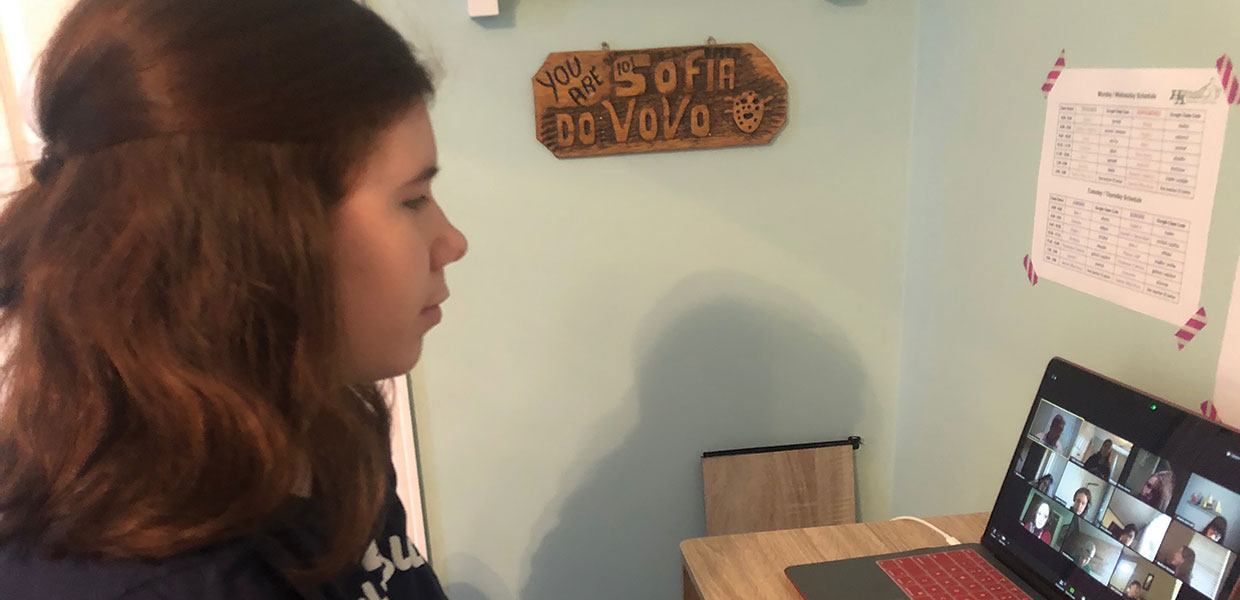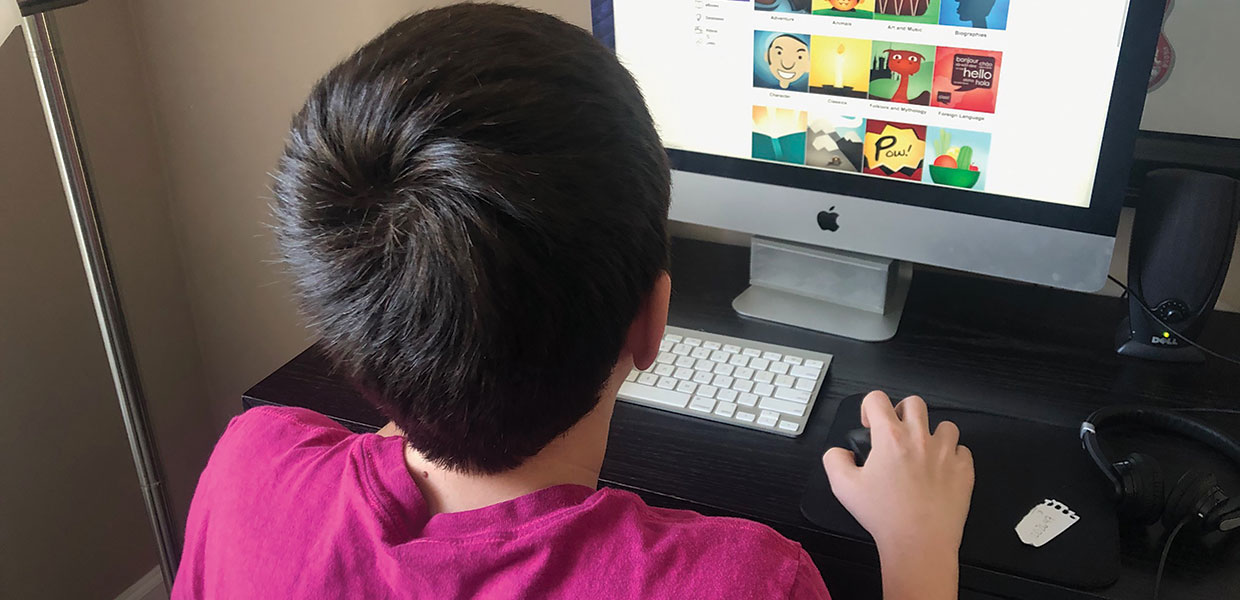


Long before COVID-19 shut down schools across the nation, the Department of Education in the Southern Union Conference provided digital library and information resources to schools within its eight-state jurisdiction.
However, the need for such services became even more apparent as teachers, students, and parents made the rapid transition to distance learning due to the life-threatening pandemic.
“When the crisis hit, we were prepared,” said Andrea Henry-Smith, associate director of education for library/information resources at the Union headquarters, referring to the mad rush for online educational materials that occurred last spring. “We weren’t scrambling for resources, because teachers and students already had the products available to them.”
The electronic library — hosted by the eResource management system, MackinVia — began in 2015 when the Union’s Department of Education restructured the Southern Union Library program, then known as the Adventist Network of General Education Libraries (ANGEL). Administrators changed the name to Southern Union Library and Information Resources (SU-LIR), and launched a program that would include both hard copy and digital books, as well as an automated library system to accommodate each school. The new set-up allowed schools to pool resources for better pricing when providing library and information resources.
“A lot of our private schools don’t have access to state electronic libraries like the public schools do, so we needed a consortium to be able to curate books and databases for research,” Henry-Smith explained. “We serve as a support to in-house library media centers for both our elementary and secondary schools. Most of our schools don’t have full-time certified librarians, and so this program is designed to augment what they have.”
The automated library system allows students to search for resources 24/7 from any device or location. Families with students enrolled in pre-K to 12 schools within the Union automatically become eligible when they pay registration fees, which include a library and/or technology fee usually ranging from about $35 to $40, according to Henry-Smith. Each teacher and student receives a personal login to access the site, which includes eBooks, research databases, audiobooks, videos, and links.
Henry-Smith said the website, which has been underutilized by teachers, students, and parents, can be especially helpful as parents play a more integral role in their children’s learning during distance learning and the summer months.
“It means that your children can be protected while searching databases,” she said, “whereas, when they go on Google to do a search, they can come across all kinds of things. Through our digital program, it’s grade-level appropriate and safe.”
The Union began the 2019-20 school year with 154 schools and 10,696 students, according to information provided by Henry-Smith. The territory is composed of the Carolina, Florida, Georgia- Cumberland, Gulf States, Kentucky- Tennessee, South Atlantic, South Central, and Southeastern conferences.
Cynthia Murray is the principal and one of two teachers at Mount Olivet SDA School in Fort Lauderdale, Florida. She said the school found the electronic library particularly helpful as the COVID-19 crisis unfolded. Prior to that, most families were not using the digital resources, but that changed when schools transitioned to distance learning.
“I think now, because of the situation that we’re in, with the students doing reports and not being physically able to get to a library, they are taking more advantage of it,” she said.
The school has a library on-site for students who like to read hard copy books, but the electronic library expands their reading options, she explained.
“For me, I like to have both,” she said. “A picture book with pages to turn is amazing, but (it’s also important) for them to be able to have eBooks this summer to avoid summer slide. We can create a reading program for them to check out books and read when libraries are still not open.
“For us, it’s incredible,” she added, reflecting on the digital resources. “I think we just need to connect with the parents and train them a little more on how to use it and how it can be beneficial to their kids.”
Murray said she appreciates the enthusiasm of Henry-Smith and her team.
“They have been so willing to train and help us, especially during the school closures and coronavirus,” she said. “I just applaud them for being so passionate about the electronic library.”
Henry-Smith said she hopes more teachers, students, and parents take advantage of digital library and information resources, which are just a click away at MackinVia.com.
“There are things that are available, and you want to make sure that your students are getting what they paid for,” she said. “Access your resources. Utilize what’s available.”
is an assistant professor in the School of Journalism and Communication at Southern Adventist University who writes freelance articles for various publications. Prior to her current position, she worked as a full-time reporter for daily newspapers across the country.
Southern Union | August 2020



Comments are closed.